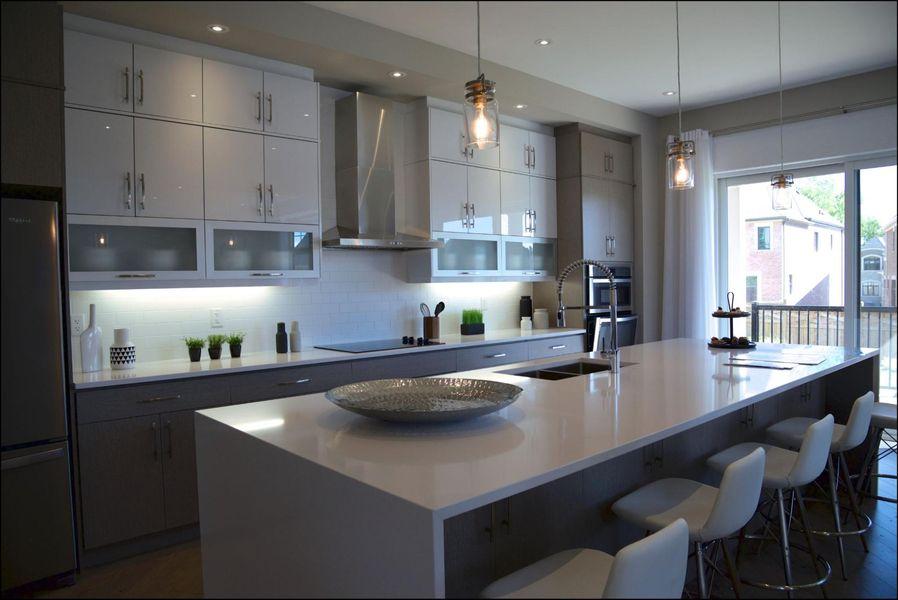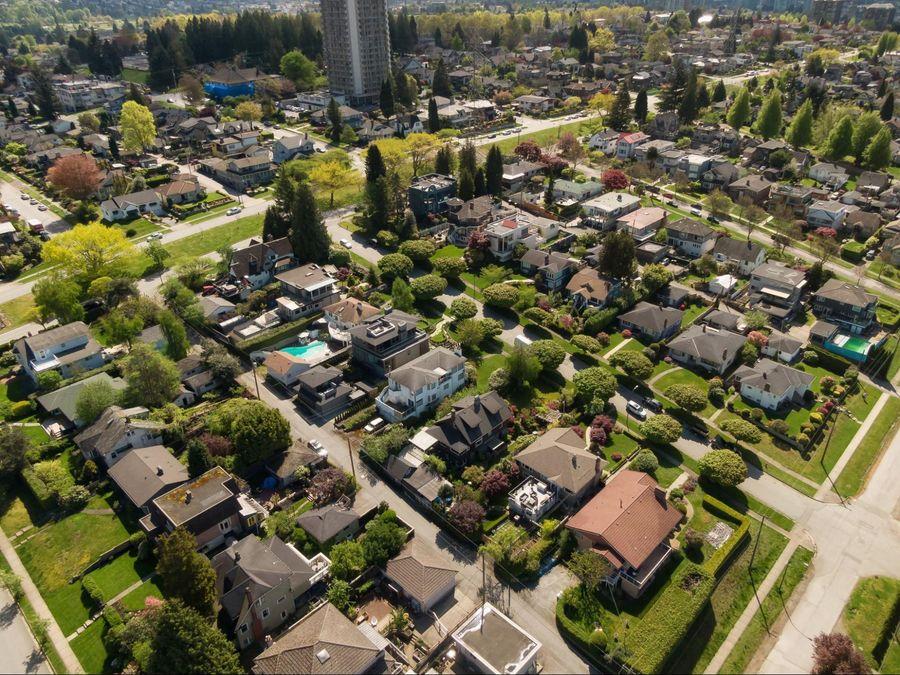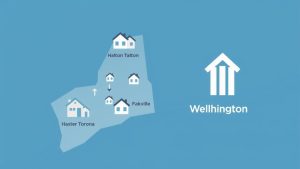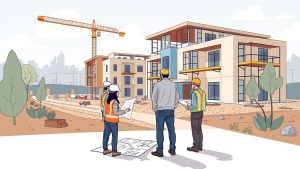Is Buying or Selling a House in the GTA Right Now Totally Crazy?
You hear stories. Big prices. Bidding wars. Then maybe things slow down. It feels confusing. Can you actually buy a home you like? Can you sell your place for a good price? It’s tough in the Greater Toronto Area. This includes places like Georgetown, Milton, Guelph, Acton, Oakville, and Burlington.
This guide is here to help. No fluff. Just simple steps. Think of it as your map for the GTA real estate world. We’ll cover how to figure out the market, get money, find a house or buyer, deal with papers, and move. Let’s make this easier for you.
Understanding the Crazy GTA Market
First things first. You need to know what’s happening right now. Is it a good time to buy? Is it a good time to sell? It changes fast.
GTA market conditions for buyers
Right now, in late 2024, the market is… interesting. Prices went super high. Then interest rates went up to fight inflation. That made borrowing money expensive. Fewer people could afford the high prices. So, things slowed down a bit from the peak craziness.
What does this mean for you as a buyer?
- Slightly More Choice: There might be more houses listed for sale compared to a year or two ago. Not a ton, but maybe not just one option you have to fight for.
- Less Wild Bidding: Fewer homes might get 20 offers way over asking. Some still do, especially good homes in popular spots. But it’s not every home like before.
- Prices Still High: Don’t expect huge deals everywhere. GTA prices are still very high compared to most places. Some areas might see prices dip a tiny bit, others stay flat, some might even creep up slowly. Expect prices to stay relatively strong into 2025 due to high demand from population growth.
- Negotiation Room? Maybe: You might be able to add conditions like a home inspection without losing the deal immediately. Maybe offer slightly under asking on a place sitting for a while. It depends on the specific house and area.
Here’s a quick look at some specific areas (late 2024 data estimates):
- Milton: Average home prices around $1.1 million. Still very popular for families. Market holding steady. New homes being built add options.
- Burlington: Average prices closer to $1.2 million. Great location near the lake and highway. Demand stays strong. Seeing more balanced conditions – not totally a seller’s game anymore.
- Oakville: Average prices over $1.6 million. One of the most expensive areas. Luxury homes influence this. High interest rates hit this market, but still strong demand.
- Georgetown & Acton (Halton Hills): Average prices near $1 million. Offers a bit more value. Attracts people wanting town life but GTA access. Market is quite stable.
- Guelph: Average prices around $850,000-$900,000. Strong job market helps. Less crazy swings than core GTA. Steady interest from buyers.
Expert Insight: Sarah Chen, a Milton real estate agent, says: “Forget just the average price. Look at ‘days on market’. If homes in Georgetown are selling in 15 days versus 30 days last year, that tells you buyer interest is picking up, even if prices look flat.”
Is it a Buyer’s or Seller’s Market?
It’s shifting towards balance in many GTA areas. What does that mean?
- Seller’s Market: Lots of buyers, few homes. Prices go up fast. Bidding wars common. Sellers have all the power.
- Buyer’s Market: Lots of homes, few buyers. Prices might drop. Buyers can negotiate hard.
- Balanced Market: Roughly equal number of buyers and homes. Prices are stable. Negotiations are more reasonable. Conditions (like inspections) are usually okay.
For late 2024 and early 2025, much of the GTA feels like it’s moving towards balance, or is already there in some spots. It’s not a deep buyer’s market yet. But it’s not the extreme seller’s market of 2021/2022.
Economic factors affecting GTA housing
What makes prices go up or down? A few big things:
- Interest Rates: This is huge. When the Bank of Canada raises rates, mortgages cost more each month. Fewer people can afford to buy, cooling demand. If rates drop in 2025, expect more buyers to jump back in, potentially pushing prices up again.
- Jobs: Lots of people working means lots of people have money to buy homes. The GTA generally has a strong job market, which keeps housing demand steady.
- Population Growth: Lots of people move to the GTA every year (immigration, people from other parts of Canada). They all need places to live. This high demand supports prices even when rates are high.
- Supply: Are builders making enough new homes? Usually, the answer is no, not enough to keep up with population growth. Low supply keeps prices high.
Housing market correction GTA / When will house prices drop Ontario?
This is the million-dollar question. Did we have a correction? Yes, prices dropped from the absolute peak in early 2022. Will they drop way more?
Probably not drastically across the board. Here’s why:
- Strong Demand: Population growth isn’t stopping.
- Limited Supply: Not enough homes are being built quickly.
- Potential Rate Cuts: If interest rates come down in 2025, more buyers can enter the market.
We might see some areas dip slightly, especially condos or areas that went up too fast. But a major crash like 2008 in the US? Unlikely for the GTA overall. Ontario housing, especially near Toronto, has strong underlying factors. Don’t bet on a massive price drop to make buying easy. Focus on buying when it’s right for you.
When is the Best Time to Buy or Sell in the GTA?
People always ask, “When should I buy?” or “When should I sell?”. The honest answer? It’s complicated.
Seasonal trends in GTA real estate
Yes, the market has seasons, like weather.
- Spring (March-May): Usually the busiest time. More houses listed. Lots of buyers looking after winter. Often competitive. Prices can peak here. Good time to sell if your house shows well.
- Summer (June-August): Can slow down a bit. People go on vacation. Less competition sometimes. Might find a slightly better deal as a buyer if sellers get anxious.
- Fall (September-November): Second busiest season. People want to move before winter. Good mix of listings and buyers. Can be competitive again.
- Winter (December-February): Slowest time. Fewer listings. Only serious buyers and sellers are usually out. Less competition, but less choice too. Prices might dip slightly, but good houses still sell.
Georgetown home buying season / Halton Hills real estate timing
Does this apply to places like Georgetown or Acton in Halton Hills? Yes, mostly. Spring and Fall are generally the most active times. Because these areas attract families, the school year calendar plays a role. People often want to move in summer before school starts. So, late Spring/early Summer can be very busy for family homes.
Best time to buy a house GTA
So, what’s the best time? Forget trying to perfectly time the market bottom. It’s nearly impossible. The best time depends more on YOU:
- When your finances are ready: You have a down payment saved. You have a stable job. You got pre-approved for a mortgage.
- When you find the right house: It fits your needs. It’s in a location you like. You can afford it.
- When you need to move: Life changes often dictate timing (new job, growing family, divorce).
Trying to wait for prices to drop 10% more could mean interest rates go up, cancelling out the savings. Or prices could just keep climbing. If you’re ready personally and financially, start looking. Don’t try to be a market genius.
Interest rate impact on home buying
Interest rates directly hit your wallet. A higher rate means a higher monthly mortgage payment for the same loan amount. Or, it means you qualify for a smaller loan.
- Example: Borrowing $600,000.
- At 3% interest (25-year mortgage): Monthly payment is about $2,839.
- At 6% interest (25-year mortgage): Monthly payment is about $3,845.
That’s over $1,000 more per month! That’s why higher rates cool the market. People just can’t afford as much house.
Keep an eye on Bank of Canada announcements. Even small rate changes affect your buying power. Lock in a rate with your pre-approval if you think rates might rise while you’re house hunting.

Getting Your Money Right: Financing Your GTA Home
Buying a house means dealing with money. Lots of it. Get this part right first.
Mortgage Pre-Approval: Step One. Always.
Before you even look at houses online, get pre-approved for a mortgage. Why?
- Know Your Budget: It tells you the maximum amount a lender will give you. This stops you from looking at houses you can’t afford.
- Shows You’re Serious: Sellers prefer offers from pre-approved buyers. It means you’re less likely to have the deal fall apart because you can’t get money.
- Locks Your Rate (Sometimes): Some pre-approvals let you hold an interest rate for 90-120 days. If rates go up, you keep the lower one. If they go down, you usually get the lower rate.
Talk to a bank or a mortgage broker. They check your income, debts, credit score, and down payment.
Understanding Mortgage Types
Lots of options. Main ones:
- Fixed Rate: Your interest rate stays the same for the whole term (e.g., 5 years). Payments are predictable. Good if you think rates will go up.
- Variable Rate: Your interest rate moves up or down with the bank’s prime rate. Payments might change (or the amount going to principal changes). Can save money if rates drop, but risky if they rise.
- Term Length: How long your rate/deal lasts (e.g., 1, 3, 5, 10 years). After the term, you renew.
- Amortization: How long it takes to pay off the entire mortgage (e.g., 25 years is common).
Choose based on your comfort with risk and your view on future interest rates.
Down Payments: How Much is Enough?
This is often the biggest hurdle.
- Minimums (Insured Mortgage):
- Homes under $500k: 5% down.
- Homes $500k – $1M: 5% on the first $500k, plus 10% on the amount above $500k.
- Homes over $1M: Minimum 20% down.
- Uninsured Mortgage: If you put 20% or more down, you don’t need mortgage default insurance (like CMHC). This can sometimes get you a slightly better interest rate and avoids the insurance premium cost.
Saving 20% in the GTA is tough with high prices. Many buyers use the minimums. Remember, a bigger down payment means borrowing less and lower monthly payments.
First-time home buyer programs Ontario
Governments have programs to help. Use them!
- Ontario Land Transfer Tax Rebate: First-time buyers can get a rebate up to $4,000 on the provincial land transfer tax. Helps cover closing costs.
- Federal First Home Savings Account (FHSA): Lets you save up to $8,000 per year (max $40,000) tax-free. Contributions are tax-deductible, and withdrawals to buy a first home are tax-free. Like an RRSP + TFSA combined for buying a home. Use this!
- RRSP Home Buyers’ Plan (HBP): Allows you to withdraw up to $35,000 (per person, so $70k for a couple) from your RRSPs tax-free to use for a down payment. You have to pay it back into your RRSP over 15 years.
- Municipal Land Transfer Tax Rebate (Toronto Only): Toronto has its own land transfer tax, and first-time buyers get a rebate up to $4,475.
Check eligibility details for each program. They can save you thousands.
Mortgage Brokers vs. Banks
- Banks: Offer their own mortgage products. Might give perks if you have other accounts there.
- Mortgage Brokers: Work with many lenders (banks, credit unions, trust companies). Can shop around for the best rate and product for you. They get paid by the lender, usually no cost to you.
It’s often worth talking to both. A broker might find deals you wouldn’t find on your own. Get quotes.
Expert Insight: David Miller, a Guelph mortgage specialist, advises: “Don’t just focus on the lowest rate. Look at prepayment options, penalties for breaking the mortgage early, and portability. Sometimes a slightly higher rate with better features is the smarter choice.”
Finding Your Place (or Buyer) in the GTA
Okay, money is sorted (or you know the plan). Now the search begins, or you get ready to sell.
Define Your Needs (Buyer) vs. Prepare Your Home (Seller)
Buyers:
- Needs vs. Wants: Be realistic. What do you absolutely need (bedrooms, location for work/school)? What would be nice (finished basement, big yard)?
- Location: This is key. Think about commute times (Georgetown to Toronto? Milton to Mississauga?). Schools? Parks? Shops? Drive around areas like Oakville or Burlington at different times.
- Type of Home: Detached? Semi? Townhouse? Condo? What fits your lifestyle and budget?
Sellers:
- Declutter: Get rid of junk. Make rooms look bigger.
- Clean: Deep clean everything. Windows, floors, bathrooms, kitchen.
- Repairs: Fix leaky faucets, broken tiles, holes in walls. Small things make a big difference.
- Curb Appeal: First impressions count. Mow the lawn, weed the garden, maybe paint the front door.
Working with a Real Estate Agent
Can you buy or sell without one? Yes. Should you? Probably not, especially in the complex GTA market.
- For Buyers: Agents find listings (sometimes before they hit public sites), arrange viewings, give advice on pricing, negotiate offers, handle paperwork. Their commission is usually paid by the seller.
- For Sellers: Agents advise on pricing, market the home (photos, online listings, showings), negotiate offers, manage paperwork. Their commission is paid from the sale price.
Finding a real estate agent in Guelph / Oakville / Milton etc.
Don’t just pick the first name you see.
- Get Referrals: Ask friends, family, colleagues who recently bought/sold in your target area (e.g., Guelph, Milton).
- Interview Agents: Talk to 2-3 agents. Ask about their experience in the specific town you care about. Ask how they’ll help you. Ask about their fees (commission).
- Check Online Reviews: See what past clients say.
- Look for Local Specialists: An agent focused on Burlington will know that market better than someone who only works in Toronto.
Choose someone you trust and communicate well with.
The Search Process (Buyers) / The Listing Process (Sellers)
Buyers:
- Get set up on an MLS portal by your agent.
- Go to open houses and private showings.
- Be ready to act fast if you see something you love.
- Don’t get discouraged if you lose out on a few offers.
Sellers:
- Your agent lists the home on MLS, takes photos/videos.
- You need to keep the house ready for showings (can be inconvenient).
- Review offers with your agent. Consider price, closing date, conditions.
Making/Receiving Offers, Negotiations
This can be stressful.
- Offers: Include price, closing date, deposit amount, conditions (financing, inspection, status certificate for condos).
- Negotiation: Seller might accept, reject, or sign back with changes (counter-offer). Buyer can then accept, reject, or counter again.
- Multiple Offers (Bidding Wars): If multiple buyers want the house, sellers often set a date to review all offers. Buyers submit their “best foot forward” offer, often with no conditions. This is risky for buyers – do an inspection before offering if possible in this case.
Your agent guides you through this.
Specific Market Insights
Milton real estate market forecast
As mentioned, Milton‘s market is expected to remain relatively stable into 2025. Good schools and family appeal keep demand steady. New construction provides options but doesn’t seem to be flooding the market enough to hurt resale values significantly. Expect modest price growth, maybe 2-4% through 2025, assuming interest rates don’t spike again.
Burlington housing market trends
Burlington saw prices climb steeply. The recent trend is a move towards more balance. Homes are taking slightly longer to sell than at the peak (e.g., maybe 20-25 days on average instead of 7-10). Buyers have a bit more breathing room. Prices likely to remain high due to location desirability, but rapid growth is probably paused for now. Expect stable prices or very slight increases in 2025.
Selling Smart: Getting Top Dollar Fast
If you’re selling, you want the most money in the least amount of time. Here’s how.
Preparing Your Home: Staging, Repairs, Curb Appeal
We touched on this. It matters. A lot.
- Staging: Can be simple decluttering and rearranging furniture. Or professional staging where they bring in furniture/decor. Makes rooms look their best in photos and in person.
- Neutral Colors: Repaint bold walls with neutral tones like beige or grey. Appeals to more buyers.
- Light: Open curtains, clean windows, update light fixtures. Bright homes feel bigger and cleaner.
- Smells: Avoid strong cooking smells or pet odors. Bake cookies or use mild air fresheners before showings.
Pricing Strategy in the Current GTA Market
This is critical. Work with your agent.
- Look at Comparables: What did similar homes nearby sell for recently? Not just listing prices, sold prices.
- Price Too High: Your house sits. Buyers wonder what’s wrong. You might end up selling for less than if you priced it right initially.
- Price Too Low: Might spark a bidding war (good!). Or you might just leave money on the table.
- Price Right: Attracts serious buyers quickly. Often leads to the best outcome.
In a balanced market, pricing close to recent comparable sales is usually best.
Marketing Your Home Effectively
Your agent handles most of this, but understand what works:
- Great Photos: Professional photos are essential. Bad phone pics kill interest.
- Video Tours / Virtual Tours: More important than ever. Lets buyers see the layout easily.
- Online Presence: MLS, Realtor.ca, agent websites, maybe social media.
- Open Houses / Showings: Allow flexible access for buyers to see the home.
Selling your house fast Burlington (or anywhere in GTA)
Need to sell quickly?
- Price Aggressively: Pricing slightly below recent comparables can generate fast interest and potentially multiple offers.
- Be Flexible on Showings: Allow showings anytime, even on short notice.
- Get a Pre-Listing Inspection: Fix any issues found before listing. Offer the report to buyers. Gives them confidence and might lead to fewer conditions on offers.
- Offer Incentives? Maybe offer to cover some closing costs, though less common in GTA unless market is slow.
Speed often comes down to price and preparation.
The Boring But Important Stuff: Legal and Closing
You found a house (or buyer). The offer is accepted. Now what?
Lawyers: You Need One
Both buyer and seller need their own real estate lawyer. They:
- Review the Agreement of Purchase and Sale.
- Search the property title (make sure seller owns it, no liens).
- Arrange title insurance.
- Coordinate with the lender (if buying).
- Calculate funds needed for closing (buyer) or proceeds (seller).
- Handle the transfer of ownership and keys on closing day.
Choose a lawyer experienced in real estate.
Home Inspections: Protect Your Investment
If you’re buying, get a home inspection if possible. An inspector checks:
- Structure (foundation, roof)
- Major systems (electrical, plumbing, heating/cooling)
- Insulation, windows, doors
- Potential issues (water damage, mold)
Costs $400-$700 typically. Worth it to avoid huge surprise repairs later. If the inspection finds big problems, you might be able to negotiate repairs with the seller or even walk away (if you have an inspection condition).
Closing Costs: Budget for These!
Buying a house costs more than just the price. Budget 1.5% to 4% of the purchase price for closing costs.
Buyer Costs:
- Land Transfer Tax (LTT): Provincial tax based on price. Biggest closing cost. Use an online calculator. Remember the first-time buyer rebate!
- Municipal LTT: Only in Toronto.
- Legal Fees & Disbursements: Paying your lawyer ($1,500 – $2,500+).
- Title Insurance: Protects against title fraud or issues ($250 – $500+).
- Mortgage Costs: Appraisal fees, insurance if less than 20% down.
- Adjustments: Paying the seller back for prepaid property taxes or utility bills.
- Moving Costs.
Seller Costs:
- Real Estate Commission: Usually 4-5% of sale price, split between buyer/seller agents.
- Legal Fees.
- Mortgage Discharge Fees: If breaking your mortgage early.
- Moving Costs.
Don’t forget these! They add up.
Title Insurance
Lenders require it. Protects you and the lender against issues with the property’s title (ownership). Examples: unknown liens, survey errors, fraud. Relatively cheap one-time cost for peace of mind.

Moving Day and Beyond
You got the keys! Or you gave them away. Now the final steps.
Planning Your Move
- Book Movers Early: Especially if moving at month-end or in summer.
- Change Address: Canada Post, driver’s license, health card, banks, subscriptions.
- Utilities: Arrange disconnection at old place, connection at new place (hydro, water, gas, internet).
- Pack: Label boxes by room. Pack an “essentials” box for the first night.
Getting Settled in Your New Community
Whether it’s Georgetown, Milton, Guelph, Acton, Oakville, or Burlington, explore your new neighbourhood.
- Find local grocery stores, parks, community centers.
- Register kids for school.
- Meet neighbours.
- Enjoy your new home!
Buying or selling in the GTA is a big deal. It takes planning and patience. Understand the market, get your finances solid, work with good professionals (agent, lawyer, broker), and focus on what’s right for your situation. You can do this.
Frequently Asked Questions (FAQ)
Q: Is it better to buy or rent in the GTA right now?
A: Tough one. Rent is also very high. Buying builds equity (you own a piece of the house over time). But ownership has extra costs (property tax, maintenance). If you plan to stay put for 5+ years, buying often makes more sense financially, even with high prices, if you can afford the monthly payments and closing costs.
Q: How much income do I need to buy a house in Milton or Guelph?
A: It depends heavily on the house price, your down payment, your other debts, and current interest rates. Lenders generally want your total housing costs (mortgage, property tax, heat) plus other debt payments to be under 44% of your gross income (called the Total Debt Service ratio). With average prices near $1M in Milton, you’d likely need a household income well over $150,000-$200,000 with a good down payment. Guelph is a bit more affordable but still requires a strong income.
Q: Should I use a bully offer (pre-emptive offer) in Burlington?
A: A bully offer is submitted before the seller’s planned offer date, trying to force their hand. It needs to be strong (high price, likely no conditions). In a slightly cooler market like Burlington might be seeing, sellers may be less inclined to accept a bully offer unless it’s truly amazing. They might prefer to wait for the offer date to see what other interest exists. Discuss the risks and potential benefits carefully with your agent.
Q: What are property taxes like in Oakville?
A: Oakville generally has a lower tax rate than Toronto. However, property taxes are calculated as (Tax Rate) x (Assessed Property Value). Since Oakville home values are very high, the actual dollar amount you pay in property tax can still be substantial, often $6,000-$10,000+ per year for an average detached home. You can check the town’s website for current rates and use MPAC’s assessed value for an estimate.
Q: Can I get a mortgage if I’m new to Canada or self-employed?
A: Yes, but it might require more paperwork or specific programs. Newcomers might need to show international credit history or have a larger down payment. Self-employed individuals need to prove stable income, usually through tax returns (Notice of Assessment) for the past two years. Mortgage brokers are often very helpful in these situations as they know which lenders specialize in these types of applications.
Feeling overwhelmed? Got more questions? Buying or selling a home is one of the biggest decisions you’ll make. Getting help from someone who knows the local GTA market inside and out makes a huge difference. Don’t be afraid to reach out and chat about your specific situation.






















